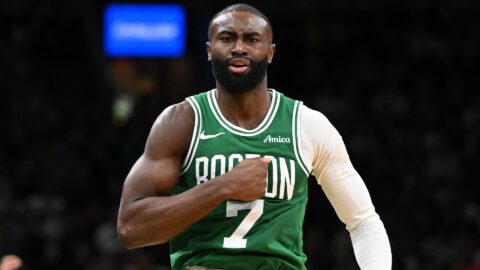On a week-to-week basis, losing is unacceptable in the NFL.
That mantra is especially true in New England, where any season that doesn't end with a new Lombardi Trophy is considered a failure.
But this year's early losses, while both disappointing and more than a bit disheartening, could serve as a blessing in disguise for the Patriots.
Obviously, every loss is a setback. But in some cases, losses are just what a team needs to know where it needs to improve and where its vulnerabilities lie.
The Patriots need not be reminded of 2007, when the team looked like one of the best collections of football talent in history through the first 11 weeks of the season, outscoring opponents by an impossible 411-157 margin in its first 10 games.
Then, the team got progressively worse. The Patriots eked out wins against A.J. Feeley and the Eagles and Kyle Boller and the Ravens — two teams that finished the year with a combined 13-19 record and two quarterbacks who have thrown more interceptions than touchdowns.
New England recovered to win out the rest of the year, but heading into the playoffs, the Patriots didn't know how to improve. They showed some weakness during the regular season, but without an "L" in the standings, they weren't wrong to think they were the best team in the league.
They then needed Tom Brady to be nearly perfect against the Jaguars (he went 26-for-28) before playing a stinker against San Diego in the AFC Championship Game. With LaDainian Tomlinson watching from the sidelines, the Patriots could only manage an uninspired 21-12 win to advance to the Super Bowl.
There, the Patriots were beaten by a Giants team that the Patriots had topped just four weeks earlier. New York outworked New England on the field, and the Giants' coaching staff was simply better than that of the unbeaten Pats.
In a large way, the Patriots' perfection in 2007 proved to be costly when the games mattered most.
That's not to say a 10-6 season is ideal, but in 2003 and 2004, the Patriots lost some key games that paid dividends in February.
The 31-0 shutout by the Bills in Week 1 of 2003 gave the Patriots an edge for the rest of the season. A hiccup in Washington later that September was all the team needed to start firing on all cylinders.
In 2004, the Patriots looked terrible on Halloween against the Steelers, losing 34-20. Brady threw two interceptions and Kevin Faulk was the Patriots' leading rusher with four yards (Cedric Cobbs was the only other player to carry the ball, picking up one yard).
It's a safe bet that both the Patriots' players and coaches called upon that loss when they once again went to Pittsburgh in January. This time, the Patriots were the bullies, winning 41-27 to advance to the Super Bowl.
The same scenario took place in 2001, when the Patriots lost a tight contest with the Rams on a Sunday-night matchup in Week 10. The Patriots played well but came up just short of beating the powerful Rams. Two and a half months later, the Patriots had the Rams figured out.
Naturally, Brady, Belichick and the Patriots never want to lose. They prepare one week at a time with the goal of adding to the win column and moving on to the next week. They'll never be satisfied after a loss.
But as the months turn to November, December and January, the Patriots will have their losses to look back upon and learn from. They'll know how and why they lost, and they'll have a better idea of how to win the next game. The Patriots know all too well that they're better off with some blemishes on the record than they were when they were stamped with perfection.



